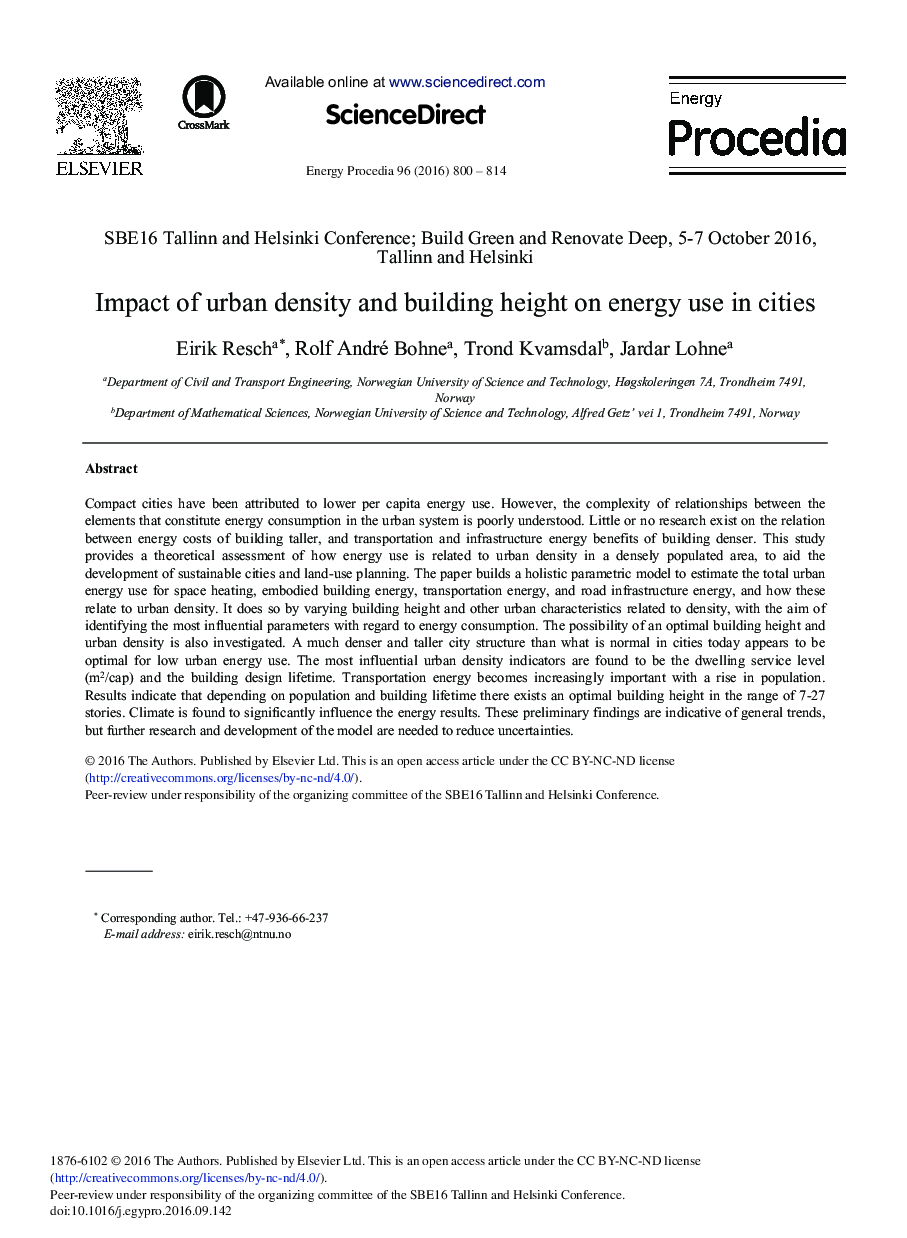| کد مقاله | کد نشریه | سال انتشار | مقاله انگلیسی | نسخه تمام متن |
|---|---|---|---|---|
| 5446774 | 1511139 | 2016 | 15 صفحه PDF | دانلود رایگان |
عنوان انگلیسی مقاله ISI
Impact of Urban Density and Building Height on Energy Use in Cities
ترجمه فارسی عنوان
تاثیر تراکم شهری و ارتفاع ساختمان در مصرف انرژی در شهرها
دانلود مقاله + سفارش ترجمه
دانلود مقاله ISI انگلیسی
رایگان برای ایرانیان
کلمات کلیدی
ارتفاع ساختمان، ساختمانهای بلند، تراکم شهری، برنامه ریزی استفاده از زمین، مدلسازی شهری نظری، انرژی تجدید شده، انرژی حمل و نقل، انرژی از دست دادن گرما، انرژی زیرساخت های راه، شهرستانها پایدار،
موضوعات مرتبط
مهندسی و علوم پایه
مهندسی انرژی
انرژی (عمومی)
چکیده انگلیسی
Compact cities have been attributed to lower per capita energy use. However, the complexity of relationships between the elements that constitute energy consumption in the urban system is poorly understood. Little or no research exist on the relation between energy costs of building taller, and transportation and infrastructure energy benefits of building denser. This study provides a theoretical assessment of how energy use is related to urban density in a densely populated area, to aid the development of sustainable cities and land-use planning. The paper builds a holistic parametric model to estimate the total urban energy use for space heating, embodied building energy, transportation energy, and road infrastructure energy, and how these relate to urban density. It does so by varying building height and other urban characteristics related to density, with the aim of identifying the most influential parameters with regard to energy consumption. The possibility of an optimal building height and urban density is also investigated. A much denser and taller city structure than what is normal in cities today appears to be optimal for low urban energy use. The most influential urban density indicators are found to be the dwelling service level (m2/cap) and the building design lifetime. Transportation energy becomes increasingly important with a rise in population. Results indicate that depending on population and building lifetime there exists an optimal building height in the range of 7-27 stories. Climate is found to significantly influence the energy results. These preliminary findings are indicative of general trends, but further research and development of the model are needed to reduce uncertainties.
ناشر
Database: Elsevier - ScienceDirect (ساینس دایرکت)
Journal: Energy Procedia - Volume 96, September 2016, Pages 800-814
Journal: Energy Procedia - Volume 96, September 2016, Pages 800-814
نویسندگان
Eirik Resch, Rolf André Bohne, Trond Kvamsdal, Jardar Lohne,
